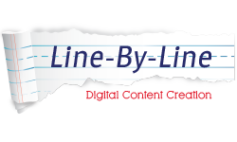Anyone who wants to improve their writing skills, be a better communicator or be considered a “great” writer should do these two things more: Read and write.
Stephen King said the same in his memoir, On Writing.
Even if you consider yourself a strong writer, you can always be better. As a business owner, good writing skills help you to:
- Clearly communicate your value to your customers
- Become a thought leader in your industry
- Streamline the process – the more you do it the smoother it is to get your words from your head onto the paper
- Practice brevity – say what you mean in fewer words
What does reading more and writing more actually look like? Here are my suggestions and rationale for adopting these practices:
Why Reading Makes you a Better Writer
Reading teaches you how to write without you even knowing it. When you take the time to read consistently, it helps you in the following ways.
- It makes you a better speller. It just makes sense that the more often you see a word spelled correctly, the more likely you are to write it correctly.
- It widens your vocabulary. Even if you come across a word you don’t know, you can usually figure it out using “context clues,” or by how it is used in the sentence. The repetition of seeing these words improves your recognition and helps you remember its meaning.
- It helps with sentence structure. Even if you can’t recall grammar rules or how to label a sentence, by reading a lot, you’ll know what “sounds right.”
- It teaches you how to tell a story. Especially true with fiction, a good book has more than just a beginning, middle and end. There are plot twists, character developments, dialogues and foreshadowing. Reading teaches you how get your readers’ attention and keep them captivated until the very end.
- It improves comprehension. You are better able to describe events in the order they happened.
- It helps you identify the writing style you like. You’ll learn different styles and voices and determine which one works best for you.
Tips to Make Your Reading More Effective
While we all have the best intentions, reading can sometimes take a back seat to putting out fires and dealing with other surprises that come up throughout the business day. Here are some tips to make reading a priority, and how to get the most out of it:
- Make reading a habit. Set aside some time each day to read, even if it’s only for 20 minutes when you first wake up or before you go to bed.
- Always have it with you. This has become easier with cell phones, Kindles and tablets. If you find yourself waiting for something longer than you anticipate, you can make good use of your time by reading.
- Experiment with variety. Read different types of writing by different authors on different subject matters. Read long works, short works and everything in between. Read books, magazines, blogs, poetry, classics, trade publications and literary magazines. Expand your horizons and read outside your comfort zone.
- Concentrate on how it is written. Notice the sentence structure. Hear the voice and appreciate how it all may be different from the last book or article you read. Paying attention to the details helps you recognize and appreciate different writing styles.
When you take the time to read, you will learn something new, be entertained and escape the real world for a while. You’ll also become a better writer.
Why Writing Makes You a Better Writer
When it comes right down to it, we really have to practice writing to do it well. It’s like the development of any skill. You need to practice playing basketball to be good at it. You need to practice a musical instrument to be good at it. And you need to practice writing in order to be good at it. Practice may not make perfect, but it can make it a whole lot better.
Here are four writing-based activities that will help you practice your writing skills, and ultimately make you a better writer:
Journaling
Keeping a journal or diary is an easy and fun way to improve your writing. You simply record the events of the day or week, how you felt about it and whom you spent your time with. It becomes a record and keepsake, and since you are writing for you and not for an audience, it could become something you enjoy and commit to on a regular schedule.
Freewriting
Freewriting is an exercise in writing whatever comes to mind for a set amount of time without stopping. The goal is word count—not worrying about spelling, grammar or even what you are writing about.
With freewriting, your writing doesn’t have to make sense or be perfect, because it’s not something anyone else will see. It’s a great brainstorming technique, because you’ll learn that even when you are at a loss for words, you can always find something to write about.
Blogging
Writing a blog about a topic related to your industry is a great way to improve your writing skills. You have a wealth of knowledge and information you probably don’t even realize you have. Imagine you are sitting at a bar with a friend explaining your blog topic. What would you say? Write it the same way you would say it.
Hand Write an Already-Published Work
Michael Masterson, author of “The Accelerated Program for Six-Figure Copywriting,” encourages his students to study and analyze successful writing by reading and copying – by hand – several award-winning sales letters. He asks them to read the letters at least 10 times, and hand-write the letters at least three times. (This is only a writing exercise; you won’t be using what you “copy” for anything besides study.)
You can use this exercise on any writing piece or style you want to emulate. It forces you to pay attention to the tone of the piece, the sentence structure, the author’s word choice and voice. The repetition of reading it and hand writing it helps you grasp the way it is written and what good strong copy should sound like.
Exposure, repetition and practice are what make you good at something. So pick your reading genre and favorite writing exercise and become a better writer today.
If you’d like to receive my best advice, please join my mailing list:

